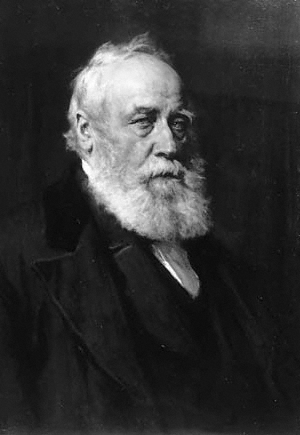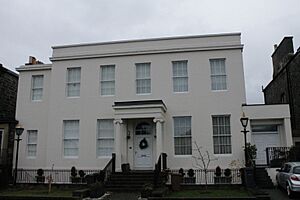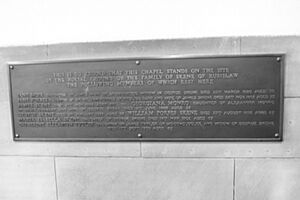William Forbes Skene facts for kids
William Forbes Skene (born June 7, 1809 – died August 29, 1892) was a Scottish lawyer, historian, and expert in old things (an antiquary). He was known for his important work studying the history of Scotland, especially its early Celtic past.
He also helped start a Scottish law firm called Skene Edwards. This company was very important for many years in the 1900s before it joined with another firm in 2008.
Contents
Early Life and Education
William Forbes Skene was born in Inverey, Scotland. He was the second son of James Skene, who was a friend of the famous writer Sir Walter Scott. His mother was Jane Forbes.
In 1817, when William was eight, his family moved to Edinburgh. They first lived with his uncle, Andrew Skene. Later, in 1820, they moved to 126 Princes Street, which had a view of Edinburgh Castle.
He went to the High School in Edinburgh. After school, he trained to be a lawyer. He worked for two different lawyers in Parliament Square.
Studying Law and History
Skene then went to the University of St Andrews and Edinburgh University to study law. He was also very interested in Celtic languages and literature. These are the languages and stories from ancient Scotland, Ireland, and Wales.
In 1832, he became a Writer to the Signet (WS). This was a special type of lawyer in Scotland. Soon after, he got a job in the Court of Session, which is Scotland's highest civil court. He kept this job until 1865.
His early interest in the history of the Scottish Highlands led him to write his first book in 1837. It was called The Highlanders of Scotland, their Origin, History and Antiquities. This book explored the background and traditions of the Highland people.
Important Work and Achievements
In 1847, there was a big problem called the Highland Potato Famine. Many people in the Highlands did not have enough food. Skene was chosen to be the Secretary for the Central Board for Highland Relief. In this role, he worked closely with Sir Charles Trevelyan to help people.
In 1859, he was chosen to be a Fellow of the Royal Society of Edinburgh. This is a group of important scientists and thinkers. He later served as the society's vice president from 1869 to 1871.
Celtic Scotland
Skene's most important work was a three-volume book series called Celtic Scotland, a History of Ancient Alban. These books were published between 1876 and 1880. Many people believe this was one of the most important books about Scottish history written in the 1800s. It helped people understand Scotland's ancient past much better.
Because of his great work, he received special honors. In 1879, he was given an honorary degree (Doctor of Civil Law) from the University of Oxford. In 1881, he was named the Historiographer Royal for Scotland. This meant he was the official historian for the Scottish Crown.
Church and Later Life
William Forbes Skene was an important member of St Vincent's Scottish Episcopal Church in Stockbridge, Edinburgh. There is a special memorial for him on the church wall. He believed that the Scottish Episcopal Church should follow the English Book of Common Prayer more closely.
In his last years, he had offices at 5 Albyn Place and lived at 27 Inverleith Row in Edinburgh.
He passed away in Edinburgh on August 29, 1892. He never married and did not have children. He is buried with his family in St John's Episcopal Churchyard on Princes Street. Their graves are marked by a bronze plaque.
See also
- MS 1467, a very old Gaelic book that Skene found, copied, and translated.
 In Spanish: William Forbes Skene para niños
In Spanish: William Forbes Skene para niños
 | William Lucy |
 | Charles Hayes |
 | Cleveland Robinson |





